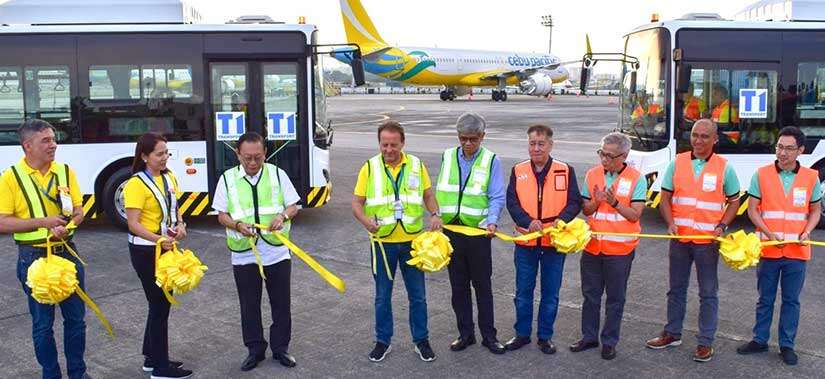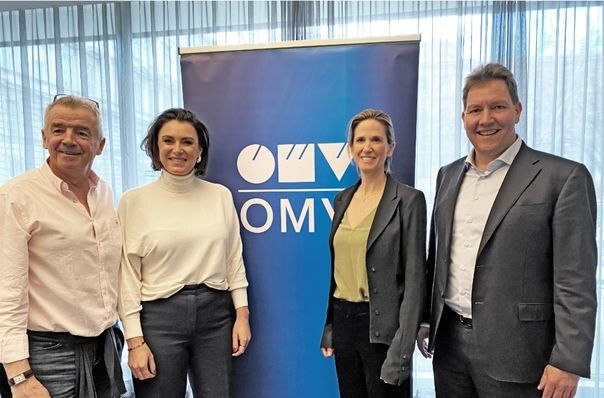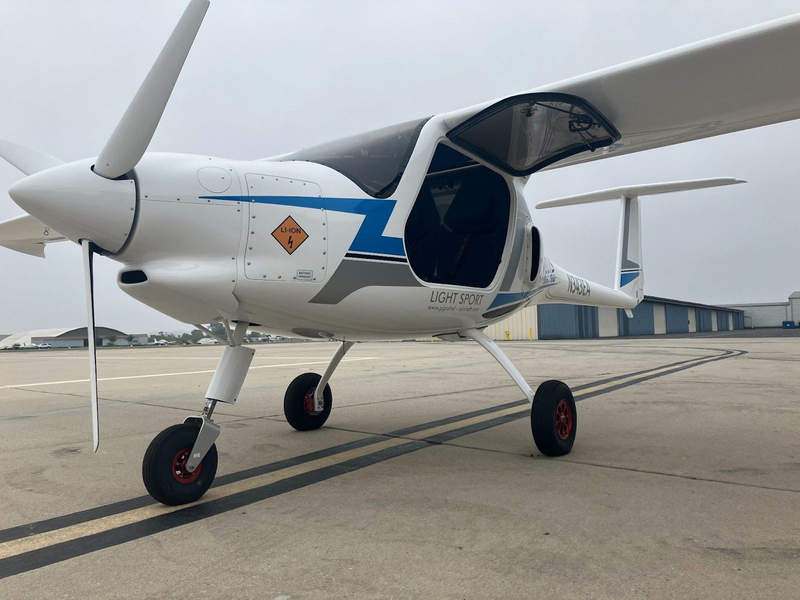
REAFFIRMING its commitment to sustainability, Cebu Pacific rolled out two new electric buses into its airport shuttle fleet, an initiative which it says is is part of the ongoing efforts to transition its ground operations to the use of electric, zero-emission vehicles and equipment.
“As the aviation industry acknowledges the pressing need for sustainable operations, Cebu Pacific is expanding its decarbonization efforts beyond modernization of its aircraft. Integrating electric buses into our ground operations is a move in this direction. Through this approach, we aim not only to reduce our carbon footprint but also to enhance the overall travel experience for our passengers,” said Alex Reyes, Chief Strategy Officer of Cebu Pacific.
These buses, leased from Therma One (T1) Transport and produced by vehicle manufacturer BYD, will shuttle CEB passengers traveling to and from the boarding gate and the aircraft.
“Driven by our mission towards decarbonization, we are actively exploring opportunities in the electric vehicle space and are pleased to have found a new partner in Cebu Pacific as it champions decarbonization in the domestic aviation industry. We are confident that our partnership will contribute to a safer and more sustainable travel experience for the public,” said Anthony Fernandez, President and Chief Operating Officer of First Balfour. T1 Transport is a wholly owned subsidiary of the engineering and construction firm First Balfour.
CEB operates 25 buses at NAIA Terminals 3 and 4 all powered by conventional fuel. The pilot program of these two electric units will provide valuable insights into their real-world performance. The program is an important step toward expanding the use of zero-emission vehicles and ground support equipment across operations.
This initiative is part of the airline’s comprehensive electric vehicle (EV) transition program, replacing conventional vehicles with electric zero-emission alternatives. It also builds on the success of last year’s launch of EV shuttles for CEB employees and the demonstration run of electric baggage tractors at NAIA Terminals 3 and 4. By embracing electric mobility, CEB aims to reduce its carbon emissions and promote sustainable practices within the aviation sector.
“As the aviation industry acknowledges the pressing need for sustainable operations, Cebu Pacific is expanding its decarbonization efforts beyond modernization of its aircraft. Integrating electric buses into our ground operations is a move in this direction. Through this approach, we aim not only to reduce our carbon footprint but also to enhance the overall travel experience for our passengers,” said Alex Reyes, Chief Strategy Officer of Cebu Pacific.
These buses, leased from Therma One (T1) Transport and produced by vehicle manufacturer BYD, will shuttle CEB passengers traveling to and from the boarding gate and the aircraft.
“Driven by our mission towards decarbonization, we are actively exploring opportunities in the electric vehicle space and are pleased to have found a new partner in Cebu Pacific as it champions decarbonization in the domestic aviation industry. We are confident that our partnership will contribute to a safer and more sustainable travel experience for the public,” said Anthony Fernandez, President and Chief Operating Officer of First Balfour. T1 Transport is a wholly owned subsidiary of the engineering and construction firm First Balfour.
CEB operates 25 buses at NAIA Terminals 3 and 4 all powered by conventional fuel. The pilot program of these two electric units will provide valuable insights into their real-world performance. The program is an important step toward expanding the use of zero-emission vehicles and ground support equipment across operations.
This initiative is part of the airline’s comprehensive electric vehicle (EV) transition program, replacing conventional vehicles with electric zero-emission alternatives. It also builds on the success of last year’s launch of EV shuttles for CEB employees and the demonstration run of electric baggage tractors at NAIA Terminals 3 and 4. By embracing electric mobility, CEB aims to reduce its carbon emissions and promote sustainable practices within the aviation sector.












